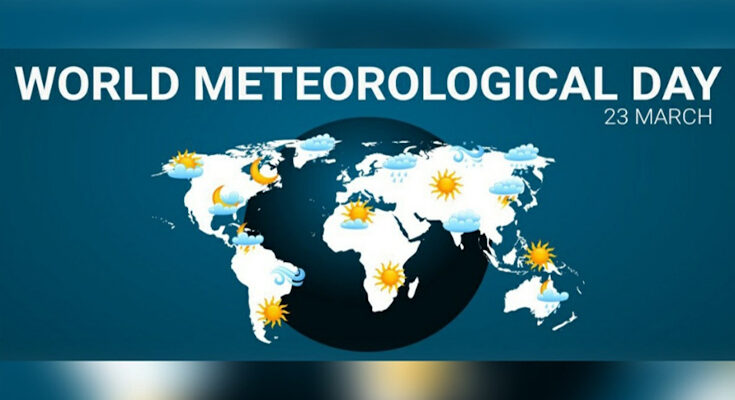Today Cuba exhibits a National Institute of Meteorology that has cultivated knowledge and experience in research, monitoring and generalization of atmospheric phenomena adjusted to international standards and the particular reality of Cuba with its location in the Greater Antilles of the Caribbean Sea.
For weather forecasting to be of quality, it is very important that the meteorological data initially observed be accurate. Meteorological observatories provide information that serves as a basis for forecasting.
Meteorology is closely linked to advances in technology, since this allows for a faster reaction capacity to dangerous meteorological phenomena and can help in the complex analyses and forecasts generated daily by specialists, such as the role played by numerical prediction models.
Meteorological services contribute greatly to reducing the damage caused by hurricanes and other natural events that can be anticipated thanks to new technologies.
For the protection of the population and the economy, in the event of natural disasters or other types of disasters, or when such disasters are imminent, phases are established with the purpose of applying in an agile and staggered manner, according to the evolution of the situation, the measures that allow reducing the consequences, these are:
- Informative phase: its objective is to inform state bodies and agencies, economic and social entities and the public, in order to
and agencies, economic and social entities and the population, of the probable occurrence of a disaster.
occurrence of a disaster. - Alert phase: it is established when the probability of the occurrence of a disaster increases.
disaster. - Alarm phase: it is established when a disaster is imminent or once it has occurred.
it has occurred. It implies the realization of all the contents of the plans against the catastrophe made.
disaster plans that have been drawn up.
Due to its location in an area prone to the formation of tropical cyclones, such as the Atlantic-Caribbean area, Cuba keeps a punctual watch on the weather through the meteorological services, which are celebrating their World Day today.
Knowing the meteorological variables is of vital importance for agriculture, air and maritime navigation, predicting droughts and floods and in general to preserve life and resources in the face of any event such as storms and hurricanes, which usually occur, especially in the rainy season of the country, from May to October.
That is why every day and at all times, the Institute of Meteorology (Insmet) of the Antillean country, belonging to the Ministry of Science, Technology and Environment, is attentive to the rains, temperatures, winds and the surrounding seas, to alert the authorities and the population to any weather anomaly.
In the tropical zone, where climate change is wreaking increasing havoc, especially in the islands, due to rising temperatures and sea levels, the importance of meteorological monitoring is even greater, in which Cuba has a recognized track record, including collaboration agreements with other nations.
On the occasion of World Meteorology Day, experts in this field from the largest Antillean Island and Russia are holding a technical advisory meeting in Havana on the applications of satellite remote sensing in agriculture.
This training meeting, led by Insmet and the offices of the United Nations Development Program (UNDP) in both countries, addresses the use of data provided by satellites for monitoring drought, the state of crops and to know the estimate of possible agricultural yields.
Insmet has also signed agreements and memorandums of understanding with other nations, such as the United States, to exchange information and conduct joint research on meteorology and climate, seismology and wildlife conservation and protected land areas.
The text, signed in December 2016 by the Insmet and the National Oceanic and Atmospheric Administration of the Department of Commerce of the northern country, includes the modeling of atmospheric conditions, the expansion and integration of climate observation networks and monitoring, as well as the analysis and prediction of hurricanes.
Insmet, created on October 12, 1965, provides early warning of atmospheric hazards on the island and the region, with reliable and timely information on the state of the weather, in order to preserve the population and resources as much as possible in the event of an adverse event, which contributes to the well-being of the people and sustainable development.
This agency, founded by the Academy of Sciences of the island, is made up of the central headquarters in Havana, nine specialized research and service centers, 14 provincial centers, including one in the special municipality of Isla de la Juventud and a network of some 70 meteorological stations throughout the Cuban archipelago.
The island’s Institute of Meteorology joined the global anniversary with various activities, this time under the slogan “Ready for the weather, prepared for the climate”, with a call to reflect on the importance of creating a network of climatological observations in each country.
In his message for the date, the Secretary General of the United Nations (UN), Antonio Guterres, explained that this should be the first step to increase resilience to extreme weather phenomena, and called for strengthening society’s capacity to adapt to these problems and to promote studies on weather forecasting.
World Meteorological Services Day is celebrated on March 23 because on that date in 1950 the World Meteorological Organization (WMO), based in Geneva, Switzerland and belonging to the UN, was created.
Since March 4, 1952, Cuba has been a member of Region IV of this scientific body, which covers North America, Central America and the Caribbean Sea.
On this particular day, the island warns about the effects of environmental pollution on the climate, whose global consequences translate into droughts, floods, sand and hail storms, tornadoes, cyclones, snowfalls, as well as extreme temperatures, avalanches, forest fires, fog and smog, fearsome evils for any country, whether rich or poor.




